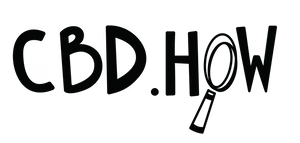Brain injuries can have devastating consequences, affecting both physical and mental well-being. While traditional treatments are available, recent research has shown promising results for the use of cannabidiol (CBD) in brain injury recovery. This article will delve into the potential benefits of CBD and provide valuable insights for those seeking natural alternatives.
Understanding CBD
CBD, or cannabidiol, is a non-psychoactive compound found in cannabis plants. Unlike THC, the compound responsible for the “high” associated with marijuana, CBD does not produce psychoactive effects. Instead, CBD interacts with the body’s endocannabinoid system, a network of receptors involved in various physiological processes.
Potential Benefits of CBD for Brain Injury Recovery
- Neuroprotection:
- CBD has been shown to have neuroprotective properties, which can help protect brain cells from damage.
- Studies suggest that CBD may reduce inflammation and oxidative stress, both of which can contribute to brain injury.
- Anti-inflammatory Effects:
- Inflammation is a common consequence of brain injury. CBD’s anti-inflammatory properties may help reduce swelling and tissue damage.
- Improvement of Cognitive Function:
- Some research suggests that CBD may improve cognitive functions such as memory, attention, and problem-solving.
- Reduction of Symptoms:
- CBD may help alleviate symptoms associated with brain injuries, such as pain, anxiety, and depression.
How Does CBD Work?
CBD interacts with the endocannabinoid system, a network of receptors found throughout the body. By binding to these receptors, CBD can influence various physiological processes, including inflammation, pain perception, and mood regulation.
Important Considerations
- Consult a Healthcare Professional: Before using CBD for brain injury recovery, it’s essential to consult with a qualified healthcare provider. They can assess your individual needs and determine if CBD is appropriate for you.
- Quality of CBD: Ensure you’re using high-quality CBD products from reputable sources. Look for products that are third-party lab-tested to verify their purity and potency.
- Dosage: The appropriate dosage of CBD can vary depending on individual factors. Start with a low dose and gradually increase it as needed, always consulting with your healthcare provider.
- Combination Therapy: CBD may work best in combination with traditional therapies for brain injury recovery.
Conclusion
While more research is needed, the potential benefits of CBD for brain injury recovery are promising. By understanding the mechanisms of action and working with a healthcare professional, individuals may be able to explore this natural approach to support their recovery journey.
Remember, this information is for educational purposes only and should not be considered medical advice. Always consult with a healthcare professional for personalized guidance.
Join our Community: Download the Mimea mobile app and connect with a supportive community of like-minded individuals. Share your experiences, ask questions, and gain valuable insights from others on their CBD journeys.
Visit Care Academy: Deepen your understanding of CBD and overall wellness by exploring the educational resources at Care Academy. Our comprehensive courses, articles, and expert insights can empower you to make informed decisions about your well-being.
Take charge of your wellness journey today! With CBD.how, Mimea, and Care Academy by your side, you have the resources and support to unlock a path toward holistic well-being.
